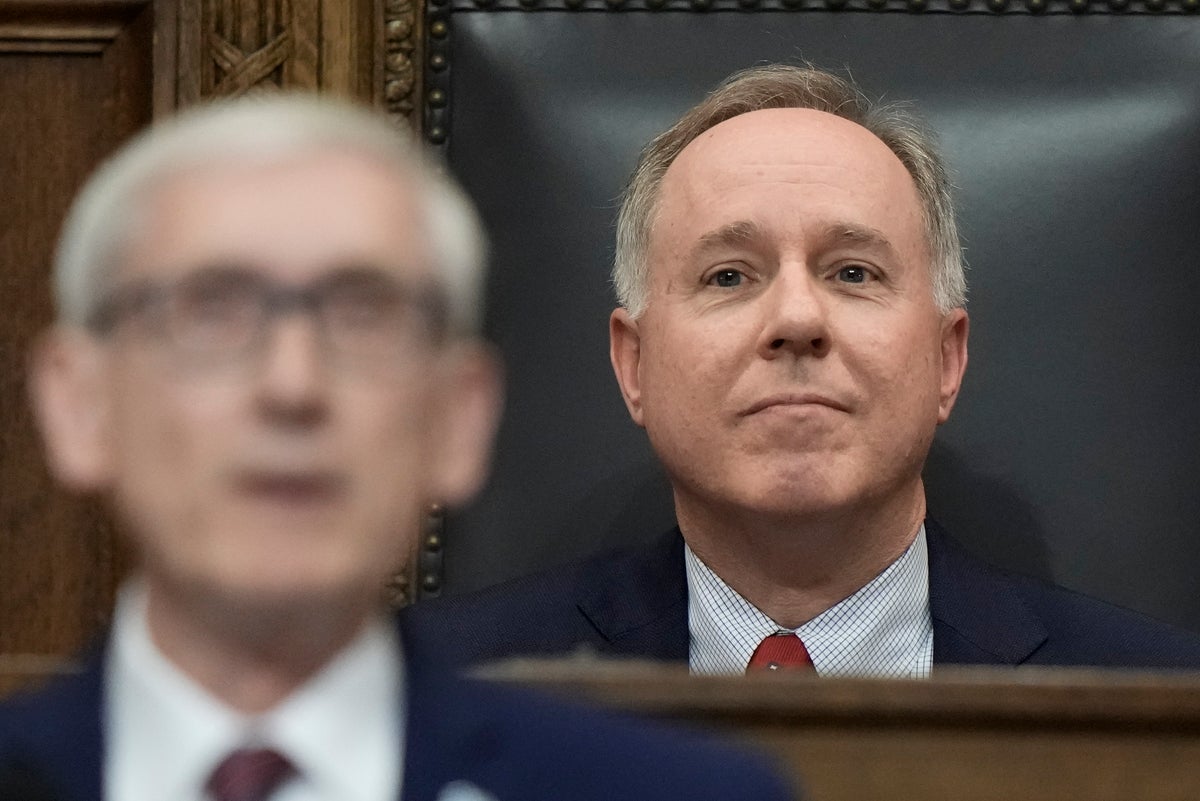
Republicans who control the Wisconsin Legislature unveiled a bill Wednesday that would create rape and incest exceptions to the state’s 1849 abortion ban and clarify when abortions that protect the health of the mother would be allowed, but would not return the same rights that were in place under Roe v. Wade.
The move comes as a pending lawsuit supported by Democratic Gov. Tony Evers seeks to overturn the ban entirely. Evers soundly rejected the Republican proposal, “I won't sign a bill that leaves Wisconsin women with fewer rights and freedoms than they had before the U.S. Supreme Court overturned Roe.”
Republicans and their anti-abortion allies, who suffered a series of defeats in ballot questions in states across the political spectrum last year, are tackling the issue nationwide in a variety of ways, including seeking exemptions.
Republican Assembly Speaker Robin Vos told The Associated Press in an interview Tuesday that he hoped Democrats and Evers would be open to clarifying the health of the mother exception and creating rape and incest exceptions for up to 12 weeks into a pregnancy.
Evers said during his successful reelection campaign last year that he would veto any bill that does not do away with the ban entirely and return the law as it was before Roe v. Wade was overturned. Before then, Wisconsin law allowed for abortions for any reason at 20 or more weeks post-fertilization, or 22 weeks after the last menstrual cycle.
The Republican bill would only allow for abortions in the first 12 weeks of a pregnancy for victims of rape or incest. It does not put a time limit on ending pregnancies that would cause “a serious risk of death of the pregnant woman or of substantial and irreversible physical impairment of a major bodily function of the woman.”
“We are still proudly pro-life, but there are some things that are different than they were 175 years ago,” Vos told AP. “We wanted to put an idea forward that shows we are willing to be reasonable.”
Evers and Democrats in Wisconsin and across the country have successfully capitalized on the U.S. Supreme Court’s overturning of Roe v. Wade in June. Evers made abortion a central issue in his winning reelection campaign and it’s a key issue in a high stakes state Supreme Court race.
Vos said he asked Evers in December to be open to compromise on abortion to address concerns of doctors about what they can do under the current law to protect the health of a mother, but received no assurances.
But Evers Wisconsinites have been clear: we must restore #Roe and repeal Wisconsin’s 1849-era criminal abortion ban. Those are the freedoms Wisconsinites want, and those are the freedoms Wisconsinites deserve.
Evers has twice called special sessions of the Legislature seeking to repeal the ban and create a way to put the question before voters. Republicans rejected both proposals within seconds, without any debate.
The bill, which Republicans said was modeled after Wyoming law, would have to clear both the Assembly and Senate before it would get to Evers. Republican state Sen. Mary Felzkowski, who is cosponsoring the measure, said there were not yet enough Republican votes for it to pass the Senate. Vos said he was confident he would get support from 50 of the 64 Assembly Republicans.
Republicans are also bringing back a bill that would allow pharmacists to dispense birth control. Bill sponsor Rep. Joel Kitchens said he saw it as a way to prevent more unwanted pregnancies. The Assembly passed the proposal last session, but it died in the Senate.
Democrats have been united in calling for the state’s 174-year-old abortion ban to be repealed entirely.
Democratic Attorney General Josh Kaul filed the lawsuit just days after Roe v. Wade was overturned. He argues that a 1985 law allowing abortions up to the point of a fetus’ viability supersedes Wisconsin’s 174-year-old ban on nearly all abortions. The point of viability is unclear; some physicians say it’s about 20 weeks, others around 28 weeks.
The lawsuit also argues that the ban is unenforceable because it has become obsolete. The ban was enacted before women had the right to vote and before the Civil War.
The winner of the state Supreme Court race on April 4 will determine majority control of the court that will likely decide the lawsuit. Democratic-backed candidate Janet Protasiewicz is running as a supporter of abortion rights. Her opponent, conservative Dan Kelly, is backed by the state’s three top anti-abortion groups, all of which support keeping the ban in place.
Polls have shown a wide majority of Wisconsin voters support keeping abortion legal and at the very least having rape and incest exceptions.
Milwaukee, Dane and Sheboygan counties were the only places in Wisconsin where abortions were taking place before the Supreme Court overturned Roe v. Wade. Clinics stopped scheduling abortions after the court’s ruling.







